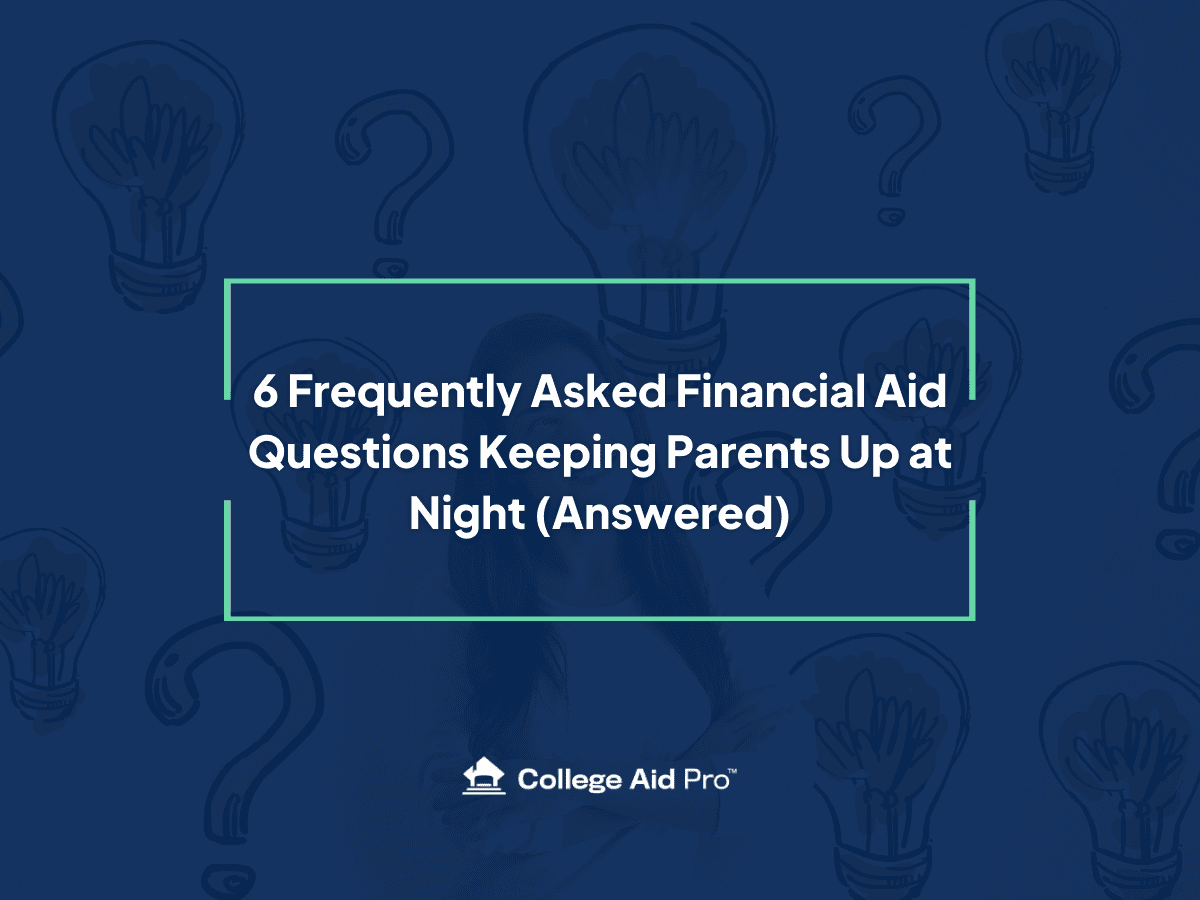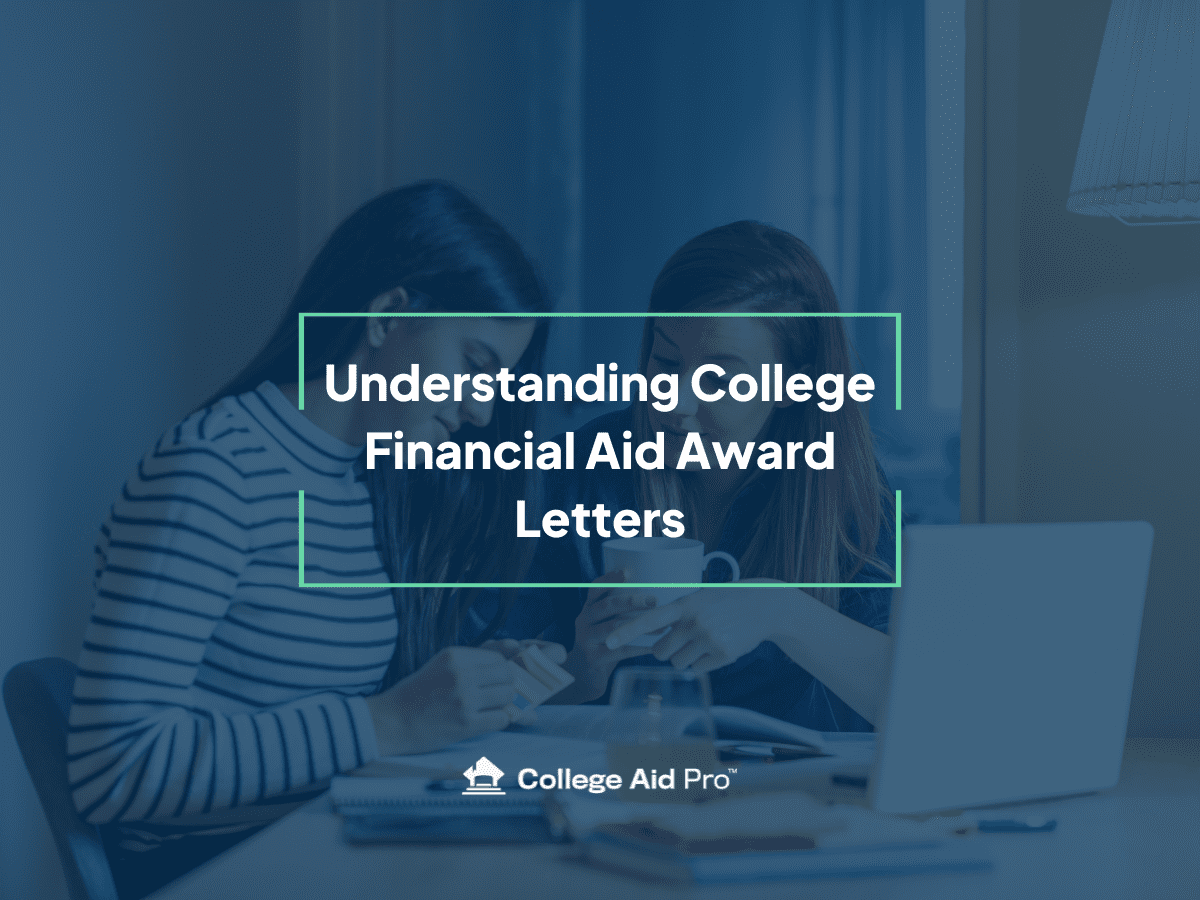6 Frequently Asked Financial Aid Questions Keeping Parents Up at Night (Answered)
If you’re lying awake wondering how you’ll pay for college, you’re not alone. Every week we hear the same stressed-out parent questions: What does FAFSA really mean for my family? Why does one school cost way more than another? Are we doing this right? 
In CAP’s Thanksgiving mailbag episode of The Ol’ College Try podcast, Matt Carpenter and Peg Keough tackled the most common financial aid questions parents ask every single day—no prep, no fluff, just real answers. Here’s a full recap, organized into six clear FAQs to help you plan smarter and breathe easier.
Financial Aid Question 1: If I have more than one child in college, will I get more financial aid?
This is one of the biggest FAFSA questions families ask—especially parents with twins or kids close in age.
Here’s the truth: it depends on the school’s aid formula.
FAFSA-only schools
Most colleges use FAFSA alone (federal methodology). These schools do not give an automatic break when you have multiple kids in college at the same time. Even if you have two or three students enrolled, the FAFSA formula treats each child as if they are the only one in college.
That change is recent, so if you’ve seen older articles saying “you’ll get a discount,” that’s outdated.
CSS Profile schools
Colleges that require the CSS Profile (institutional methodology) usually do give a break for multiple kids in college. But how much they reduce your cost varies a lot by school.
Why this matters: two kids in college can mean thousands less at one school and almost nothing at another. This is why comparing real net cost before applying is essential
Financial Aid Question 2: Divorced or separated parents: who fills out the FAFSA?
This question causes huge confusion—and huge cost swings.
FAFSA rule: only one biological parent completes the FAFSA. The other parent (non-custodial) isn’t included at FAFSA-only schools.
So who counts as the “custodial parent”?
Custodial parent = the one who provided the most financial support in the last 12 months.
Not based on:
-
who the student lives with
-
who claims them on taxes
-
who has legal custody
-
who makes more money
Peggy emphasized the planning opportunity here: if your student is a junior, you can still structure support intentionally so the FAFSA reflects the household that helps your family most.
If a parent remarried
If the custodial parent is remarried, the step-parent’s finances are included on FAFSA. Prenups don’t matter in financial aid formulas.
CSS Profile schools
If the college requires CSS Profile, both parents are usually in play:
-
Custodial parent submits the main CSS Profile
-
Non-custodial parent submits a separate CSS form
So even if FAFSA looks “lighter,” CSS schools may still consider both homes.
Financial Aid Question 3: Does my Student Aid Index (SAI) mean that’s what I’ll pay?
This is the most misunderstood FAFSA topic.
SAI is not your college bill.
It’s only a starting point for need-based aid.
Matt explained it like this:
-
You might have a low SAI (say $15,000)…
-
…but still get a $60,000+ bill from an out-of-state public university that doesn’t meet need.
On the other hand:
-
A high SAI doesn’t mean you’re out of options.
-
You may still qualify for merit scholarships, even if need-based aid is off the table.
Bottom line: SAI matters, but net cost at each school matters more. Figure out what your SAI is before submitting your forms with MyCAP!
Financial Aid Question 4: How do rental properties or investment homes affect FAFSA?
Families with second homes, rentals, or real estate LLCs ask this constantly.
If rentals are owned inside a small business
If your rental properties are held in a legitimate small family business (including many LLCs), and the business has fewer than 100 full-time employees, FAFSA allows the value of that business to be excluded.
That can dramatically lower your FAFSA-based aid calculation.
If they aren’t business assets
Then they’re treated as investments and should be listed under:
“Net worth of investments.”
Primary home value is excluded from FAFSA, but:
-
vacation homes
-
secondary properties
-
rentals not clearly part of a business
must be reported.
CSS Profile note
CSS schools still ask about all real estate, business ownership, and usually verify via tax forms—so there’s less flexibility.
Financial Aid Question 5: Can I trust a college’s Net Price Calculator?
Short answer? Not completely.
Matt and Peg shared that most net price calculators (NPCs) are inaccurate because:
-
Schools outsource NPCs to third-party vendors.
-
There’s no oversight requiring accuracy.
-
CAP’s research found most NPCs use outdated cost data.
That’s especially risky if you’re applying Early Decision, when you’re committing without seeing a real offer.
Better strategy: compare estimated net cost across colleges using consistent, updated numbers—not a patchwork of school calculators.
Financial Aid Question 6: Should we appeal a financial aid offer? Will it hurt admissions?
Parents worry appealing makes them look greedy or could hurt their child’s standing.
Peggy was crystal clear:
-
Schools expect appeals every year.
-
Some colleges even budget for them.
Worst case: they say no.
Best case: you save thousands.
One important caveat: tone matters
Appeals should be:
-
respectful
-
specific
-
supported with clear reasoning
-
focused on affordability and fit
A thoughtful appeal is normal. A hostile one isn’t effective.
Students can help
Having your student write a sincere note about why they want to attend can increase your odds. Colleges want to invest in students who are truly excited to enroll.
Final Thoughts: You’re Not Behind—You’re Doing the Right Thing
If these financial aid questions sound like your internal monologue, you’re in the right place. The system is complicated on purpose, and most parents are guessing their way through it. But you don’t have to.
Remember:
-
Different schools use different rules.
-
SAI is not your bill.
-
Appealing is part of the process.
College planning gets a lot less scary once you’re working with accurate numbers and a clear strategy.
If you want help estimating your real net cost across colleges—or sanity-checking a school’s net price calculator—MyCAP can help you sort it out fast.



